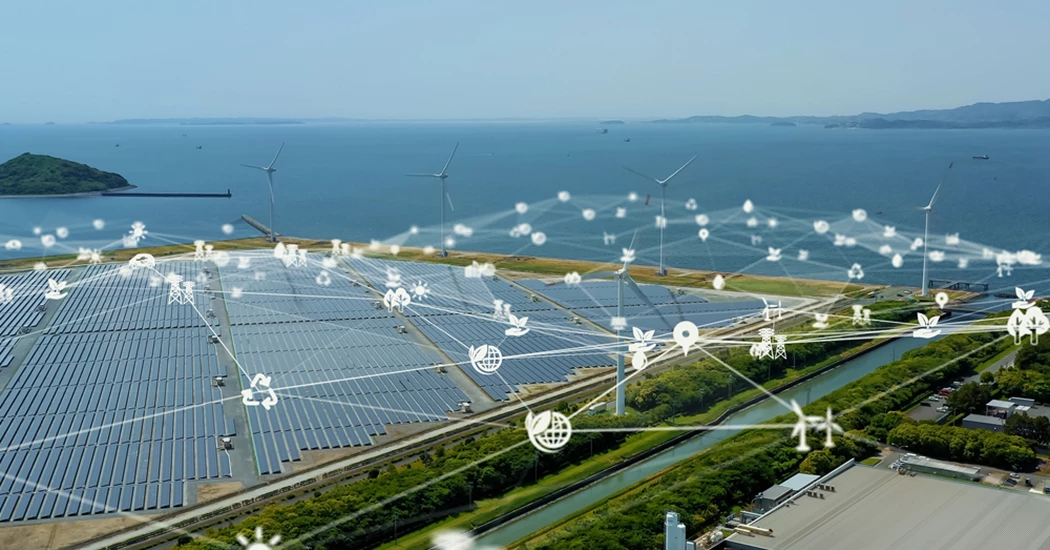AI is a powerful tool to transform the energy market
AI can provide a platform for international operations to export energy. Nonetheless, the technology can help predict supply and demand before problems occur, says Shayan Tavassoli, Global Lead of Upstream Technology Commercialisation at Beyond Limits.
How can AI provide guidance to avoid a future energy crisis such as gas deficiency leading to higher prices?
Future energy crises can be mitigated by improving our ability to predict energy supply and demand before problems occur. Companies can leverage Artificial Intelligence (AI) technologies for this purpose. AI can help in several ways - including predicting energy consumption and available reserves, identifying root causes of supply/demand imbalance, balancing electricity supply/demand in real-time, reducing production and operation risks, recognizing new energy resources, and mitigating environmental impact.
The energy and sustainability industries are implementing AI-enabled technologies to help in these areas. For instance, in the oil and gas industry, AI can help identify the best strategies to maximise production, extend asset life, track commodities supply and demand, improve complex refinery operations, reduce time to market, and mitigate environmental impact. In the electric power industry, AI can optimise generation facilities’ operations, save energy and fuel, improve economic dispatch based on forecast load demands, and reduce risk with shortfall planning.
With the recent addition of new technologies such as Cognitive AI, companies can now encode human knowledge with traditional numeric-based AI. This capability will be crucial for supporting the complex challenge of balancing energy supply and demand while achieving sustainability and decarbonisation goals.
How can AI provide a decentralised view on the energy market?
Advanced AI technologies can significantly improve accuracy for energy consumption predictions and learn from historical events that could impact the energy market. Moreover, AI-enabled platforms can also improve the trading of gas (NG, LNG), electricity, hydrogen, wind, solar, etc., helping to leverage decentralised energy generation across various sources.
As energy consumption increases, complexity grows due to expanded production from different energy sources. AI can help forecast electricity consumption and demand in real-time, which results in a more resilient grid when unforeseen events occur.
AI can integrate the generated energy from different residential and commercial sources, maintain a balanced grid, and intelligently store energy when demand is low while transferring energy where demand is high.
In summary, AI-enabled technologies facilitate a more sustainable and resilient grid of the future that can accommodate a decentralised energy market and faster integration of renewable energy sources.
Can AI balance assets on grids worldwide?
As energy consumption and uncertainties in ESG increase, more advanced technologies will be necessary for bolstering grid resilience. We have all witnessed the catastrophic destruction caused by power loss during the Texas winter storm of February 2021, largely due to the sole reliance on an independent, state-wide grid. This disaster illustrated the critical need for infrastructure improvements, both in the US and worldwide.
While it is difficult to balance assets and grid power flow worldwide because disparate grids are not connected, AI can help forecast energy shortfalls and prioritize where asset investments should focus. AI can provide a blueprint for planning the most effective way to install/upgrade assets on the grid.
Can AI provide a platform for international operations to export energy?
AI-enabled solutions can help in the transition to an AI-centralized system. However, it’s also important to cite the complexity of power grids and their infrastructure - as well as risks associated with widespread adoption, such as data security and governance issues.
Nonetheless, AI can help mitigate electric grid disruption as more nodes are added through real-time supply/demand monitoring and allocating energy where it is needed most. AI’s ability to learn from the past and predict/forecast the future helps determine the best use and flow of energy, such as gas through massive pipelines.
In summary, AI can provide a platform for international operations to export energy - but its success relies on policy and regulation coordination, alongside new infrastructure capital management.
What are the partnerships taking place in this sector and how can companies develop more?
AI is an indisputable facet of the energy sector’s new generation. Advanced technologies like AI can overcome the inherent complexity and uncertainty of the sector, tapping into alternative renewable energy sources. This complex task will require collaborative partnerships from the key players across energy and technology industries to accelerate digital transformation and the adoption of AI solutions.
We have seen great partnerships, such as the EPRI-AI and Open AI Energy Initiative (OAI) in the energy industry. AI solutions are data-driven with human knowledge encoded as a subject-matter-expert knowledge base. These solutions provide an integrated platform across the whole energy value chain in which knowledge and best practices can be shared to address the challenges of operational efficiency and energy transition. We need more data and knowledge-sharing partnerships as well as joint initiatives across technology to accelerate the digital transformation required for the new generation of the energy sector.
KEEPING THE ENERGY INDUSTRY CONNECTED
Subscribe to our newsletter and get the best of Energy Connects directly to your inbox each week.
By subscribing, you agree to the processing of your personal data by dmg events as described in the Privacy Policy.
















